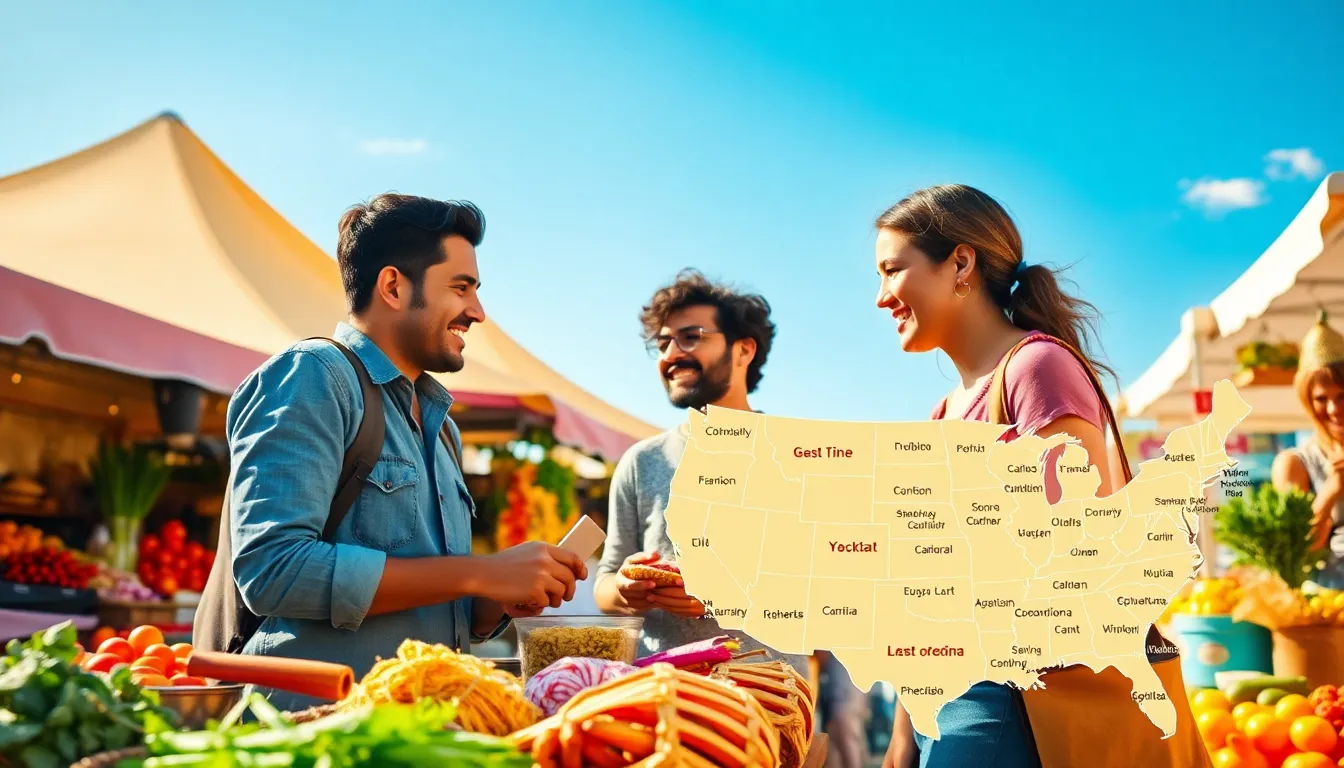Is there anything better than traveling the world with a fork in one hand and a passport in the other? Food travel shows bring the joy of culinary exploration into our living rooms, creating a mouthwatering blend of adventure and gastronomy. From bustling street markets to artisanal kitchens, these shows tantalize our taste buds and inspire wanderlust. In this text, we’ll explore the rise of these delectable series, jump into the cultural significance of food, and spotlight some must-watch programs that are heating up our screens, all while considering how they boost tourism in ways we might not expect. So grab your favorite snack and settle in because this is going to be a flavorful journey.
Table of Contents
ToggleThe Rise of Food Travel Shows

Food travel shows have exploded in popularity over the last two decades. You can credit reality television for kicking off this trend, making culinary experiences accessible and entertaining. Shows like Anthony Bourdain: No Reservations and Parts Unknown broke traditional travel television molds. They didn’t just showcase food: they engaged with local cultures and told stories that resonated with viewers. This shift has paved the way for a new generation of food enthusiasts and travelers, eager to explore destinations through their cuisine.
Streaming platforms have only fueled this expansion, giving viewers access to an endless variety of shows. Audiences no longer have to settle for whatever is on cable. They can discover new series featuring chefs and food lovers from diverse backgrounds. The blend of high-quality production, captivating storytelling, and delicious food has turned food travel shows into a binge-worthy genre, driving their rise to the forefront of entertainment.
Culinary Exploration: A Journey Through Culture
Food is an integral part of every culture, speaking volumes about people’s history, values, and traditions. Culinary exploration serves as a fascinating lens through which travelers can understand a destination’s soul. From tasting fresh sushi in Tokyo to devouring tagine in Marrakech, travelers discover that each dish tells a story. Food travel shows enrich this experience by providing viewers with the context behind each meal.
What sets these shows apart is their ability to address broader cultural themes. They dig into the societal factors and historical elements that have influenced local cuisines. For instance, a show might explore how immigration has shaped a city’s food scene or how ancient cooking techniques are still utilized today. This level of depth transforms a simple food show into a cultural documentary, making it not just about eating but about understanding.
Viewers are not simply cheering on their favorite chefs: they are learning about the intricate tapestry of the world, one dish at a time.
Popular Food Travel Shows to Watch
When it comes to food travel shows, the options are virtually limitless. Some of the most iconic programs have left indelible marks on the genre:
- Anthony Bourdain: No Reservations – A classic that beautifully marries food with storytelling. Bourdain’s charisma and wicked sense of humor kept viewers enthralled as he explored countries beyond their plate.
- Parts Unknown – This show takes a deep jump into locations often overlooked by tourists. Bourdain uncovers hidden gems while exploring local dining scenes, making each episode a must-watch.
- Street Food: Asia – A Netflix favorite showcasing the vibrant street food cultures across Asia. The combination of mouthwatering visuals and personal stories captures the essence of regional cuisines.
- Ugly Delicious – Hosted by David Chang, this series challenges traditional food norms, encouraging viewers to rethink their culinary prejudices. Each episode explores a specific dish’s journey, celebrating various cultures along the way.
- Chef’s Table – Not strictly a travel show, but it offers a fine dining twist. It dives deep into the lives of world-renowned chefs, making culinary arts feel like a form of high art.
These shows engage viewers and inspire them to travel, experiment with new recipes, or simply reflect on their culinary preferences.
Impact of Food Travel Shows on Tourism
The influence of food travel shows on tourism is profound. It’s no secret that these programs entice viewers to explore destinations. Seeing a vibrant dish on screen can ignite a desire to experience it firsthand. For instance, after watching an episode featuring Naples’ famed pizza, travelers may plan their trip, eager to taste that original margherita.
Businesses also reap the benefits. Tour companies and restaurants often experience spikes in interest following new show releases. Destinations featured prominently in popular food travel shows frequently see a significant boost in foot traffic, often translating into increased economic activity.
But the impact doesn’t stop at mainstream destinations. Lesser-known locales often get an opportunity to shine, showcasing unique culinary experiences that tourists might overlook. Whether it’s a family-owned café in a hidden alley or a bustling farmer’s market, food travel shows shine a light on these treasures, inviting travelers to seek them out. As a result, local economies thrive, and communities benefit from increased interest.
The Future of Food Travel Shows
As viewers become ever more discerning, the future of food travel shows is likely to be diverse and dynamic. Emerging trends include a focus on sustainability and ethical eating. Audiences are increasingly aware of where their food comes from and the environmental impact of food production. Shows that highlight farm-to-table concepts or sustainable fishing practices will likely gain traction.
Also, the role of social media in shaping content cannot be ignored. Platforms like Instagram and TikTok are increasingly influencing the kinds of food experiences that gain popularity. Future shows may play into this by integrating social media trends, engaging directly with audiences to create a more interactive viewing experience.
Besides, virtual reality and augmented reality technologies could revolutionize how viewers experience culinary adventures from home. Imagine exploring a vibrant spice market in Morocco or participating in a virtual cooking class with renowned chefs. The fusion of technology with the culinary world will likely shape the next wave of food travel content.





